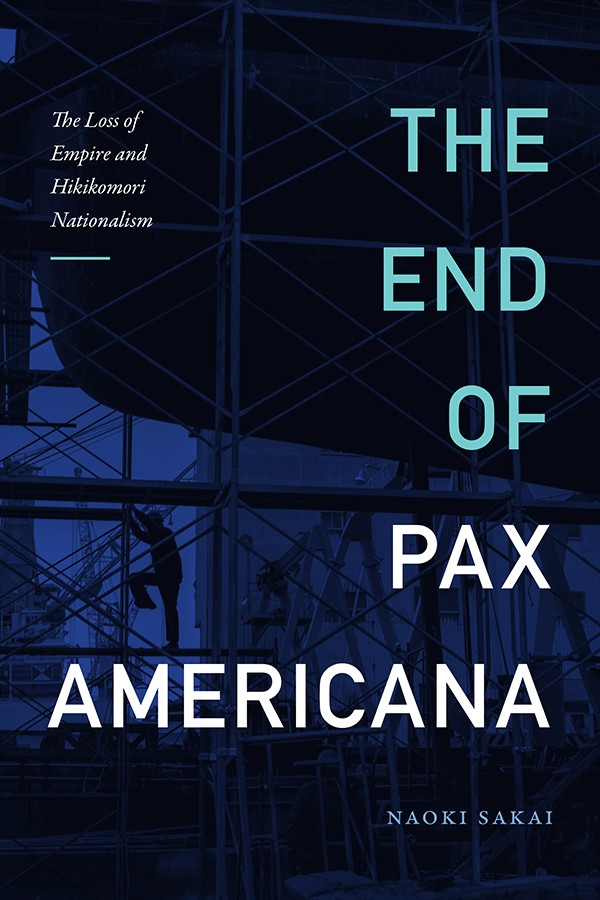As a primary school student in Japan in the 1950s, Naoki Sakai was made to drink skim milk at lunchtime every day. "It was not tasty, but I could manage to gulp it since I was told it was nourishing and good for health," Sakai said. He was surprised, years later, to learn that some British friends had also been given the same low-quality American-sourced milk at school.
Sakai now recognizes the American-made global system that "overwhelmed" his youth in Japan as "Pax Americana," the political, economic, military, intellectual and cultural order of the world sustained by the global hegemony of the United States since the end of World War II.
In his new book "The End of Pax Americana: The Loss of Empire and Hikikomori Nationalism," Sakai, the Distinguished Professor of Asian Studies Emeritus in the College of Arts and Sciences, examines Pax Americana and its lasting effects on Japan, as well as other countries and universities in the phenomenon of "area studies." In an era when Pax Americana, as a colonial order, is in decline, Sakai sees a new order taking place that dislocates American and Europe ("the West") from the center of world power.
The book assembles essays Sakai published over a long period, many of which he gave as public lectures since 2000 in places such as Singapore, Leiden, Hong Kong, Leipzig and Kyoto.
American political and cultural power after World War II brought about the end of empire for other once-powerful nations, Sakai said. In the United Kingdom, individuals widely felt the loss of empire for the first time in the 1970s, he said, leading to collective anxiety, anti-immigrant racism and eventually, the withdrawal from the European Union.
"I have witnessed something similar happen in Japan," Sakai said. "The Japanese were also covertly proud of their imperial status in relation to Asian neighbors."
Sakai describes a reaction to Japanese loss of empire - a widespread shift toward isolationism - as "hikikomori nationalism;" the term is inspired by the social phenomenon of hikikomori, often translated as "reclusive withdrawal." Starting in the 1980s, many young people in Japan - up to 2 million - withdrew from social activities to confine themselves to their bedrooms.
"It occurred to me that this social phenomenon of hikikomori was contemporary with the general sociopolitical trends increasingly prominent in Japan at that time," Sakai said. "Japan's domestic politics shifted to the right and populist movements gained wide support. It was the period when the Japanese economy began to stagnate and enter a long period of recession."
Today, Sakai observes Americans perceive a similar loss of empire in their everyday lives. The order of Pax Americana is extremely important to Americans, he said, even though most Americans are not aware of its presence in the world. "Americans take it for granted," he said.
As a historian, Sakai is pessimistic about repercussions of the twilight of Pax Americana, which he calls "the most sophisticated form of modern colonialism." He looks to the United Kingdom and the fallout from its exit from the European Union as a forerunner of lost empire.
Sakai is at work on another book, tentatively entitled "Dislocation of the West," that will provide a large theoretical framework for the issues raised in "The End of Pax Americana."
Kate Blackwood is a writer for the College of Arts and Sciences.







